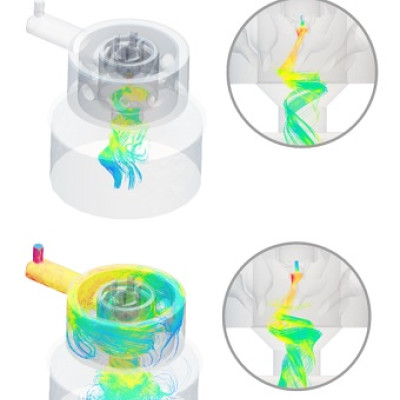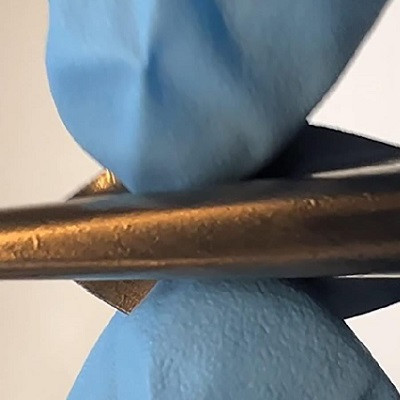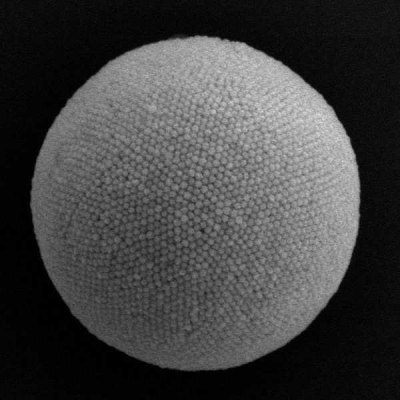Led by Assistant Professor of Chemistry Jianbo Gao, the research proposes that perovskite nanocrystalline is a more affordable and accessible alternative to silicon for use in photovoltaics, a method of converting solar radiation into electricity.
“The average household electricity rate in Canada is around 15 cents per kilowatt-hour,” Gao says. “Our goal with this new material is to achieve less than one penny per kilowatt-hour, which is 15 times less than the cost of the traditional silicon photovoltaics technology.”
Perovskite nanocrystalline can be easily applied to any surface using a spin-coating method that uniformly deposits a thin film.
“Its simple production and low cost make it accessible and affordable, and also highly efficient at the same time,” he says. “Amidst climate change and worldwide efforts to reduce fossil fuel use, this novel material can contribute to advancing renewable energy alternatives. It could change the future of energy in Canada.”
Gao is leading the novel research in collaboration with international partners from Brown University, Clemson University, Lawrence Berkeley National Laboratory and the National Renewable Energy Laboratory.
Also contributing to the research was Brock undergraduate student Jasjit Bains, who graduated in June with a Bachelor of Science in Biochemistry.
Their article, “Ultrafast Carrier Drift Transport Dynamics in CsPbI3 Perovskite Nanocrystalline Thin Films,” was recently featured in ACS Nano, an open-access journal published by the American Chemical Society. The journal is one of the top international forums for the communication of comprehensive articles on nanoscience and nanotechnology research at the interfaces of biology, chemistry, engineering, materials science and physics.
Over the next several years, Gao will continue his research focus on renewable energy and will work with international partners and his colleagues in Brock’s Yousef Haj-Ahmad Department of Engineering to apply his research to creating solar cell technology and products.
“This is a relatively new research direction in Canada — very few people are working on this,” he says. “Now that we know the material, we need to transform it to a new practical product that will advance society and ultimately make people’s lives better.”
Read the original article on Brock University.







